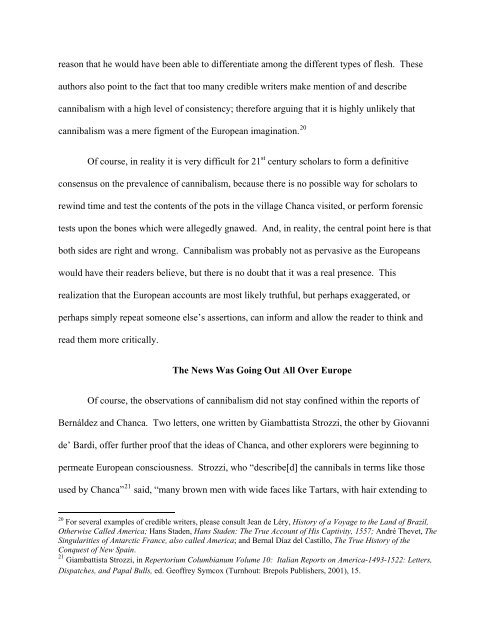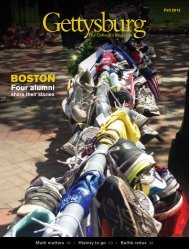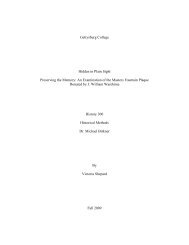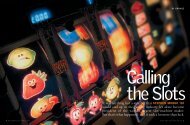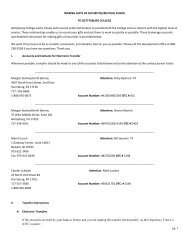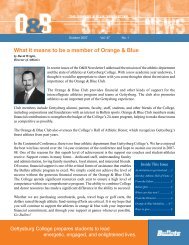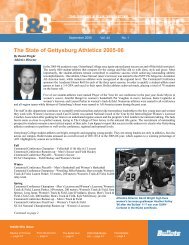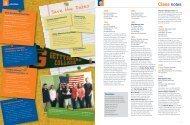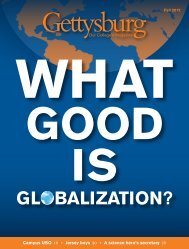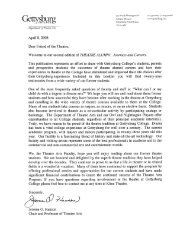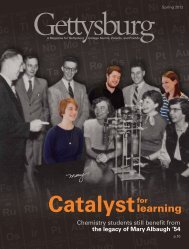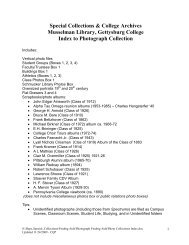Sweet Tooth for Empire: Sugar and the British Atlantic World
Sweet Tooth for Empire: Sugar and the British Atlantic World
Sweet Tooth for Empire: Sugar and the British Atlantic World
You also want an ePaper? Increase the reach of your titles
YUMPU automatically turns print PDFs into web optimized ePapers that Google loves.
eason that he would have been able to differentiate among <strong>the</strong> different types of flesh. These<br />
authors also point to <strong>the</strong> fact that too many credible writers make mention of <strong>and</strong> describe<br />
cannibalism with a high level of consistency; <strong>the</strong>re<strong>for</strong>e arguing that it is highly unlikely that<br />
cannibalism was a mere figment of <strong>the</strong> European imagination. 20<br />
Of course, in reality it is very difficult <strong>for</strong> 21 st century scholars to <strong>for</strong>m a definitive<br />
consensus on <strong>the</strong> prevalence of cannibalism, because <strong>the</strong>re is no possible way <strong>for</strong> scholars to<br />
rewind time <strong>and</strong> test <strong>the</strong> contents of <strong>the</strong> pots in <strong>the</strong> village Chanca visited, or per<strong>for</strong>m <strong>for</strong>ensic<br />
tests upon <strong>the</strong> bones which were allegedly gnawed. And, in reality, <strong>the</strong> central point here is that<br />
both sides are right <strong>and</strong> wrong. Cannibalism was probably not as pervasive as <strong>the</strong> Europeans<br />
would have <strong>the</strong>ir readers believe, but <strong>the</strong>re is no doubt that it was a real presence. This<br />
realization that <strong>the</strong> European accounts are most likely truthful, but perhaps exaggerated, or<br />
perhaps simply repeat someone else’s assertions, can in<strong>for</strong>m <strong>and</strong> allow <strong>the</strong> reader to think <strong>and</strong><br />
read <strong>the</strong>m more critically.<br />
The News Was Going Out All Over Europe<br />
Of course, <strong>the</strong> observations of cannibalism did not stay confined within <strong>the</strong> reports of<br />
Bernáldez <strong>and</strong> Chanca. Two letters, one written by Giambattista Strozzi, <strong>the</strong> o<strong>the</strong>r by Giovanni<br />
de’ Bardi, offer fur<strong>the</strong>r proof that <strong>the</strong> ideas of Chanca, <strong>and</strong> o<strong>the</strong>r explorers were beginning to<br />
permeate European consciousness. Strozzi, who “describe[d] <strong>the</strong> cannibals in terms like those<br />
used by Chanca” 21 said, “many brown men with wide faces like Tartars, with hair extending to<br />
20 For several examples of credible writers, please consult Jean de Léry, History of a Voyage to <strong>the</strong> L<strong>and</strong> of Brazil,<br />
O<strong>the</strong>rwise Called America; Hans Staden, Hans Staden: The True Account of His Captivity, 1557; André Thevet, The<br />
Singularities of Antarctic France, also called America; <strong>and</strong> Bernal Díaz del Castillo, The True History of <strong>the</strong><br />
Conquest of New Spain.<br />
21 Giambattista Strozzi, in Repertorium Columbianum Volume 10: Italian Reports on America-1493-1522: Letters,<br />
Dispatches, <strong>and</strong> Papal Bulls, ed. Geoffrey Symcox (Turnhout: Brepols Publishers, 2001), 15.


